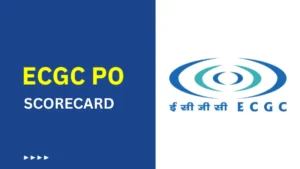IBPS PO Reasoning Ability Quiz
The reasoning being the scoring part can enhance your performance as a whole. All you need to do is clear your basics and be aware of the syllabus of the particular exam you are preparing for. Study Notes for the topics like Puzzles, Coding-decoding, sitting arrangement, blood relations, and the list is long is provided on Adda247, so that you can make the preparation time fun by cracking the logic that runs the engine of a particular topic. Giving mocks and Quizzes on a regular basis will help you to decode the strategy. Also, the Study Plans go hand in hand with the exam preparations that will take place in the upcoming months. Like the IBPS PO Prelims are scheduled in the month of October and we already rolled the study plan ‘Kar IBPS PO 2019 FATAH’ for your aid. Under the same plan, here is the Quiz for Reasoning, to make sure that you don’t skip any important topic as well as be prepared to face any type of questions in the prelims. IBPS PO Reasoning Quiz of 25th August 2019 covers Miscellaneous Topic.
Direction (1-5): Read all the information carefully and answer the given questions:
There are eight people A, B, C, D, E, F, G and H they live on 8 different floors of a building, lowermost floor is numbered as 1 and topmost floor is numbered as 8. All are of different ages i.e. 45, 36, 28, 24, 5, 15, 17 and 11, but not necessarily in the same order.
There are two people live between E and C. H is the oldest person but doesn’t live on an even-numbered floor. There are only two people live between C and the floor on which third youngest person lives. B lives just above the floor on which the person lives who is 5yrs old. E’s age is a perfect square of even number. B lives on an even-numbered floor. E lives on an odd-numbered floor. Neither G nor F lives on 7th floor. B’s age is not 11 and 17 yrs. The one who lives on 2nd floor, his age is an even number, but he is not 24yrs old. A lives on even numbered floor above B. D lives on an even-numbered floor. Only two persons live between G and A, whose age is a prime number, but he is younger than F.
Q1. Who among the following lives on 5th floor?
(a) F
(b) C
(c) G
(d) A
(e) D
S1. Ans.(c)
Sol.
Q2. Who among the following is 28 yrs old?
(a) C
(b) A
(c) D
(d) B
(e) E
S2. Ans.(c)
Sol.
Q3. C lives on which of the following floor?
(a) 8th floor
(b) 3rd floor
(c) 4th floor
(d) 7th floor
(e) 1st floor
S3. Ans.(c)
Sol.
Q4. Who among the following is 17yrs old?
(a) F
(b) C
(c) A
(d) E
(e) D
S4. Ans.(b)
Sol.
Q5. How many persons lives between A’s floor and H’s floor?
(a) Two
(b) One
(c) Three
(d) Four
(e) None of these
S5. Ans.(d)
Sol.
Directions (6-10): In this question, relationship between different elements is shown in the statements. The statements are followed by conclusions. Study the conclusions based on the given statement and select the appropriate answer.
Q6. Statements: P>Q>R=U, U≥T<S, T≥W
Conclusions:
I. R>W
II. U=W
(a) Only conclusion I is true
(b) Only conclusion II is true
(c) Either conclusion I or II is true
(d) Both conclusions I and II are true
(e) Neither conclusion I nor II is true
S6. Ans.(c)
Sol.
I. R > W (False)
II. U = W (False)
Q7. Statements: P>Q>R<U, U≥V>S, V<W
Conclusions:
I. P>S
II. P < S
(a) Only conclusion I is true
(b) Only conclusion II is true
(c) Either conclusion I or II is true
(d) Both conclusions I and II are true
(e) Neither conclusion I nor II is true
S7. Ans.(e)
Sol.
I. P > S (False)
II. P < S (False)
Q8. Statements: A = K > X < L > N ≤ R; Q ≥ A; N = M
Conclusions:
I. Q > X
II. K > M
(a) Only conclusion I is true
(b) Only conclusion II is true
(c) Either conclusion I or II is true
(d) Both conclusions I and II are true
(e) Neither conclusion I nor II is true
S8. Ans.(a)
Sol.
I. Q > X(True)
II. K > M (False)
Q9. Statements: J = K > X < L > N ≤ R; Q ≥ K; J < M
Conclusions:
I. Q > X
II. X < M
(a) Only conclusion I is true
(b) Only conclusion II is true
(c) Either conclusion I or II is true
(d) Both conclusions I and II are true
(e) Neither conclusion I nor II is true
S9. Ans.(d)
Sol.
I. Q > X (True)
II. X < M (True)
Q10. Statements: J >K > X < L > N ≤ R; Q ≥ J < M
Conclusions:
I. R < M
II. M R
(a) Only conclusion I is true
(b) Only conclusion II is true
(c) Either conclusion I or II is true
(d) Both conclusions I and II are true
(e) Neither conclusion I nor II is true
S10. Ans.(e)
Sol.
I. R < M(False)
II. M R (False)
Q11. How many pairs of letters are there in the word “PERMISSION” each of which have as many letters between them in the word as they have between them in the English alphabetical series?
(a) Two
(b) Five
(c) Three
(d) Four
(e) More than five
S11. Ans.(e)
Sol.
Q12. Meena faces west and walks 2 km to reach P, then turn left walks 5km. After this, she turns right and walks 5 km again. Now, she turns again towards right and walks 4km, then turns right and walks 5km. Now, what is the shortest distance between Point P and Final position and in which direction she is with respect to P?
(a) 1km, North
(b) 2km, North east
(c) 1km, South
(d) 2km, South west
(e) None of these
S12.Ans.(c)
Sol.
Q13. The position of how many alphabets will remain unchanged if each of the alphabets in the word ‘NEWSLETTER’ is arranged in alphabetical order from left to right?
(a) Four
(b) One
(c) Three
(d) Two
(e) None
S13. Ans.(d)
Sol.
Original Word- NEWSLETTER
Obtained Word- EEELNRSTTW
Q14. If the expressions ‘M>N ≤ O < P’, ‘N >Y’ and ‘P <Q’ are true, which of the following conclusions will be false?
(a) N < Q
(b) M> Q
(c) Y < M
(d) O > Y
(e) None of these
S14.Ans.(b)
Q15. In a class, all students are seating on a bench and facing north, Meena is 14th from left and Sneha is 10th from right end. Then how many children are seating between Meena and Sneha?
(a) 4
(b) 7
(c) 5
(d) Data Inadequate
(e) 10








 GA Capsule for SBI Clerk Mains 2025, Dow...
GA Capsule for SBI Clerk Mains 2025, Dow...
 The Hindu Review October 2022: Download ...
The Hindu Review October 2022: Download ...
 ECGC PO Scorecard 2025 Out, Check Marks
ECGC PO Scorecard 2025 Out, Check Marks




